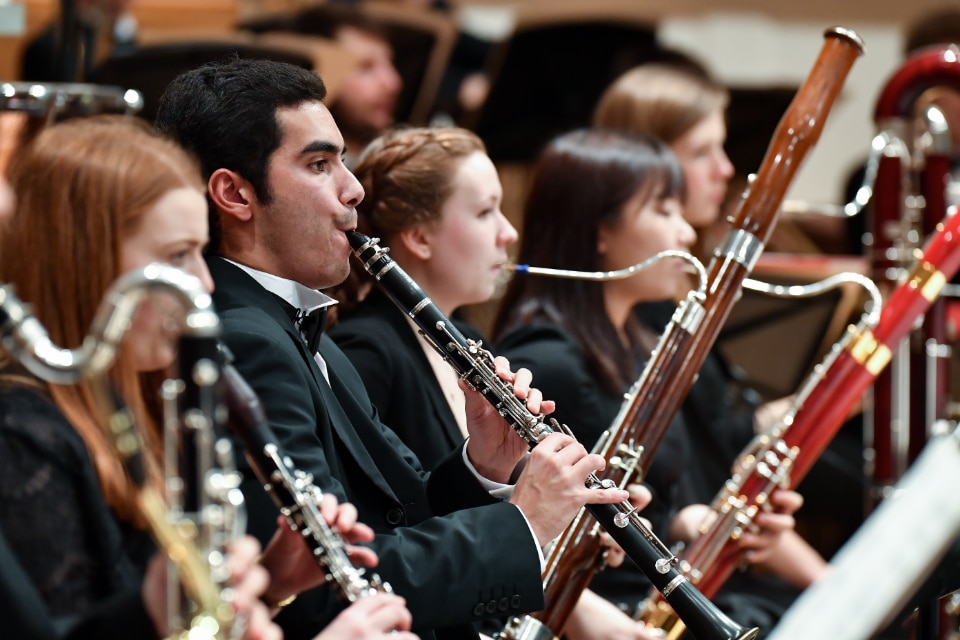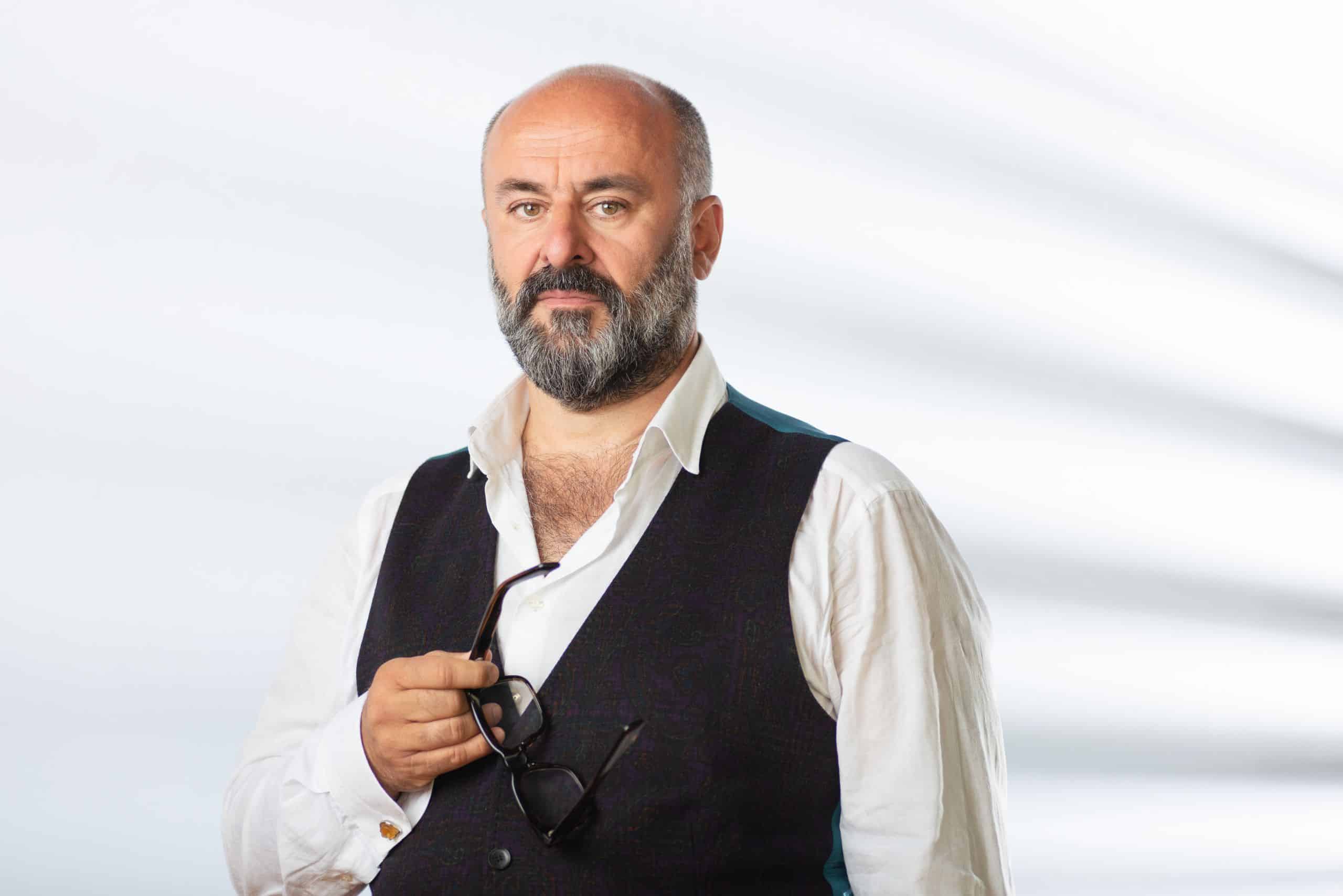The sound I miss most in our orchestral silence
mainFrom the Lebrecht Album of the Week:
The sound I miss most in our orchestral silence is the unexpected wail of a clarinet, in pain or pleasure like a cat in coitus, at the moment a symphony seems to be drifting towards the intermission. No way is the clarinet going to let this music end without a howl.
Of all clarinet concertos, and I include Mozart’s, Aaron Copland’s is my favourite by a Siamese smile. Grifted from a dying cadence in Mahler’s ninth symphony…
Read on here.
And here.
In Czech.
In The Critic.

If you wish to publish the Lebrecht Album of the Week in other languages, please contact us.





I’m waiting for new atonal masterpiece “Cat in Coitus”, hopefully from some under-represented, overly oppressed, transgender/totally confused composer.
Oh Gawd, NL , isn’t life bad enough without this sort of commentary ?
Why? It would probably be
just as dreadfulon par with the majority of new (atonal) „masterpieces“ being written by well-represented, unoppressed, cisgender/unconfused composers.Why? How it does it advance the cause of anything decent to make a comment like this? And shame on the 17 of you (and counting) who give it a thumbs up?
Norman – I know you moderate comments on this site, as mine sometimes don’t make it. Why let this bit of drivel in?
he enjoys conflict
Conflict, and clicks. Hence the unceasing obsession with Astanova, who has nothing to contribute to the world of music or culture (not even pop culture), and Yuja, Khatia, etc. being mentioned only for their looks or what they wear: those posts bring in more clicks than anything seriously related to music.
(To be fair, there are a lot of serious posts too; and as I’ve argued elsewhere, the site must be paid for somehow.)
That strikes me as a strange thing to miss. But de gustibus etc.
Wonderful imagery. Makes me think of my own loving statement about the clarinet when I was compelled to take 1 semester of it as an undergrad: any instrument that overblows at the 12th can have nothing of value to contribute to the art of sound,
The standard of clarinet playing these days is very high, so I’m sure Mr. Martin’s renditions here are excellent.
As a clarinet player I will agree that the Nielsen is very enjoyable and challenging to play, though I enjoy listening to it (and anything by Nielsen), too.
I prefer the Nielsen to Copland, but that’s me.
And thank you for not making the almost-inevitable reference to the recording of Benny Goodman, who commissioned the Copland and whose recording a lot of critics seem to consider the relevant benchmark; I’ve never much cared for his rendition – great jazz player but much as I appreciate his forays into the classical realm he wasn’t nearly as good there. Somebody has to say it.
Your review comment re the Nielsen takes me back 60 years to an artsy Cheltenham gathering where the host played us LPs. Spent an agonising 20m or so enduring that playback, from a Decca LXT.
Your review is a good candidate for Pseud’s Corner in Private Eye! Mind you I’ve never noticed the similarity between the opening phrase of the Copland Concerto and Mahler 9 before. Was that deliberate? I’m sure most clarinetists wouldn’t be flattered if their solo was described as an “unexpected wail”.
If you think so, do submit it.
The opening of the finale of M9 is the first phrase of Copland’s concerto.
I can hear no similarity at all between the opening of the finale of Mahler 9 and the opening of the Copland.
https://youtu.be/lTK9Y9TLdFw
https://youtu.be/9GnJBLwOjFo
Although it may seem like the ultimate cliche imo anyone interested in the Copland concerto should find the Bernstein/NYPO recording with Stanley Drucker soloist. The piece was written with those musicians in mind. As for the range of orchestral music for clarinet few musicians meet the challenges as well as Robert Marcellus during his tenure as the Principal of the Cleveland Orchestra. The fact that he had to retire, and ultimately passed away, prematurely due to the side effects of diabetes was an artistic injustice.
Marcellus’ recording of the Mozart with Szell is the one I keep returning to.
Drucker’s Copland recording with Bernstein is great. We are often influenced by the first recording we hear of a piece, and for me it was Gervase de Peyer, who isn’t generally a favorite but he played it very well.
Drucker’s recording of the Nielsen, also with Bernstein and the NYPO, is a classic though it seems to provoke mixed reaction among clarinetists. When he made it in the mid-60s (in one take, according to legend) it was a real test even for top professionals. Now a good high schooler can play it.
Amos I had the experience of attending what was quite possibly Robert Marcellus’s last public performance. He was one of a number of famous musicians who vacation in Wisconsin’s Door County peninsula, a tradition that goes back to Frederick Stock, and I often saw him attending the Peninsula Music Festival orchestra concerts. He had been their principal clarinetist going back to 1954, and guest conducted the orchestra a number of times.
Not long before his death he guest conducted the orchestra, which is made up of members of orchestras across the country and is a very fine one.
The program included a Mozart piano concerto and George Szell’s orchestration of the Schubert Octet. Marcellus was by then totally blind and had to be escorted to and from the podium, and had to be helped to turn around and acknowledge the applause. A very moving if tragic experience.
His stick technique was clean and economical.
During his tenure in Cleveland, he regularly conducted regional orchestras in Ohio. I’m sure you are aware, and perhaps even reviewed, a mid-60’s recording of the Schubert led by George Szell which included RM.
David I just came across a new You Tube post of a 1969 Blossom performance of the Brahms 4th led by GS. The clarinet solos, especially in the 2nd movement, highlight what a superb musician RM was. IMO the performance is also noteworthy in how different it is than the rather tepid 1966 studio recording. That music-making of this quality and intensity occurred at the end of a summer season adds proof to a comment that one of the principal players made to the effect that every Monday morning rehearsal was treated like a Carnegie Hall performance. I’m sure it was a trying experience but the results were usually in the words of Myron Bloom “magic”.
https://www.youtube.com/watch?v=89JaMHRkuns
The most missed sound that we orchestral musicians miss is the note of A natural played by the oboe signaling the tune up of the orchestra !!!!
Yes, richard! The oboe’s A, or if a piano’s involved, the piano’s A followed softly by the lower F and D for the magical D-minor triad. But what a visiting sheik liked best was the warming-up before the anticipatory A.